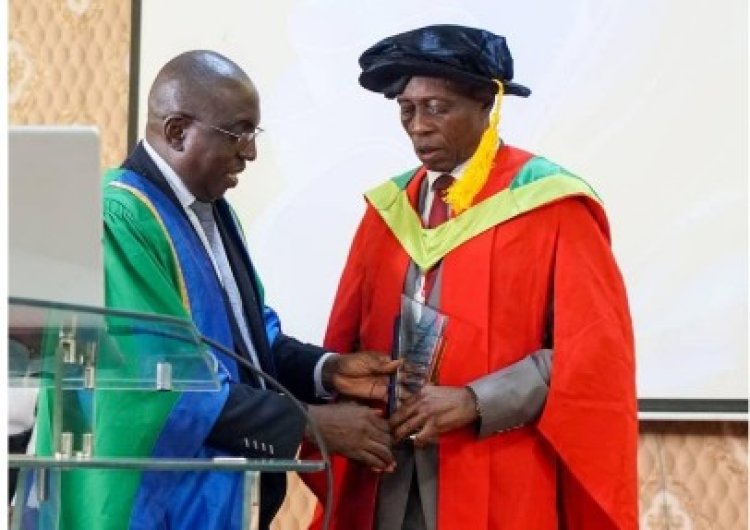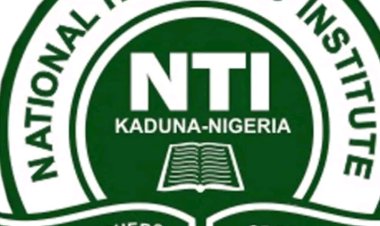FUNAAB Professor Advocates Agricultural Machinery Engineering for Nigeria's Food Security
Professor Alex Folami Adisa, an esteemed figure in the Department of Agricultural and Bio-Resources Engineering at the Federal University of Agriculture, Abeokuta (FUNAAB), delivered an inaugural lecture on March 20, 2024, emphasizing the critical role of agricultural machinery engineering in addressing Nigeria's food security challenges and fostering industrial development.

In a compelling inaugural lecture held at the Oluwafemi Balogun Ceremonial Building on March 20, 2024, Professor Alex Folami Adisa, a distinguished figure in the Department of Agricultural and Bio-Resources Engineering at the Federal University of Agriculture, Abeokuta (FUNAAB), underscored the pivotal role of agricultural machinery engineering in fortifying Nigeria's food security and fostering industrial development.
Addressing a diverse audience, Professor Adisa emphasized the imperative for Nigeria to confront its food insecurity challenges through strategic investment and innovation in agricultural machinery engineering. He warned that any nation unable to ensure an adequate food supply for its populace faces significant peril.
Drawing upon his extensive experience in agricultural engineering, Professor Adisa urged national stakeholders to capitalize on Nigeria's abundant skilled workforce and leverage successful research outcomes from its research institutions to bolster food security and spur industrial growth. He projected that such initiatives could substantially mitigate unemployment, engage the nation's workforce and youth productively, and consequently reduce hunger and crime rates plaguing Nigeria.
SEE MORE: UNILORIN SSANU, NASU Members Commence Seven-Day Strike
Professor Adisa proposed a comprehensive approach to enhancing agricultural engineering education by reintegrating certain elective courses into the core curriculum. He argued that this adjustment would enrich students' learning experiences and better prepare them for the challenges ahead.
Furthermore, he called upon the College of Engineering to lead collaborative efforts among faculty members spanning various research domains to refine and commercialize successful projects. Professor Adisa stressed the necessity of modern equipment provision to facilitate efficient commercial production of innovations, thereby benefiting local communities and the nation at large.
Highlighting the transformative potential of mechanized farm operations, Professor Adisa cited examples such as precision planting technologies and post-harvest processing innovations aimed at optimizing agricultural productivity and improving livelihoods. He showcased ingenious solutions, including a prototype drilling rig powered by agricultural machinery and a novel floating fish cage system, as testament to the importance of innovation and collaboration in addressing Nigeria's food security challenges.
In conclusion, Professor Adisa urged for national collaboration, innovation, and investment in agricultural machinery engineering as fundamental pillars for achieving sustainable food security and industrial development in Nigeria.
READ ALSO: McPherson University Advocates Collective Vigilance Against Insecurity
The inaugural lecture was attended by a distinguished gathering, including the Vice-Chancellor, Professor Babatunde Kehinde, who expressed appreciation for the profound insights shared by Professor Adisa. Professor Adisa's professional affiliations include memberships in esteemed organizations such as the Nigerian Institutions of Agricultural Engineers and the Polish Society of Agricultural Engineers.

 Chris Oyeoku Okafor
Chris Oyeoku Okafor 



